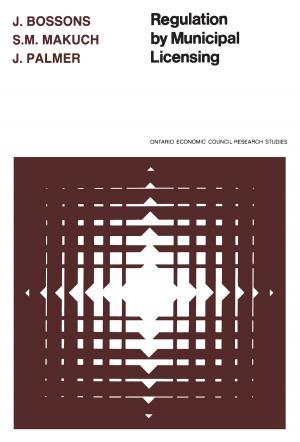The Dignity of Every Human Being
New Brunswick Artists and Canadian Culture between the Great Depression and the Cold War
Nonfiction, History, Americas, North America, Art & Architecture, General Art, Art History| Author: | Kirk Niergarth | ISBN: | 9781442663206 |
| Publisher: | University of Toronto Press, Scholarly Publishing Division | Publication: | February 26, 2015 |
| Imprint: | Language: | English |
| Author: | Kirk Niergarth |
| ISBN: | 9781442663206 |
| Publisher: | University of Toronto Press, Scholarly Publishing Division |
| Publication: | February 26, 2015 |
| Imprint: | |
| Language: | English |
“The Dignity of Every Human Being” studies the vibrant New Brunswick artistic community which challenged “the tyranny of the Group of Seven” with socially-engaged realism in the 1930s and 40s. Using extensive archival and documentary research, Kirk Niergarth follows the work of regional artists such as Jack Humphrey and Miller Brittain, writers such as P.K. Page, and crafts workers such as Kjeld and Erica Deichmann. The book charts the rise and fall of “social modernism” in the Maritimes and the style’s deep engagement with the social and economic issues of the Great Depression and the Popular Front.
Connecting local, national, and international cultural developments, Niergarth’s study documents the attempts of Depression-era artists to question conventional ideas about the nature of art, the social function of artists, and the institutions of Canadian culture. “The Dignity of Every Human Being” records an important and previously unexplored moment in Canadian cultural history.
“The Dignity of Every Human Being” studies the vibrant New Brunswick artistic community which challenged “the tyranny of the Group of Seven” with socially-engaged realism in the 1930s and 40s. Using extensive archival and documentary research, Kirk Niergarth follows the work of regional artists such as Jack Humphrey and Miller Brittain, writers such as P.K. Page, and crafts workers such as Kjeld and Erica Deichmann. The book charts the rise and fall of “social modernism” in the Maritimes and the style’s deep engagement with the social and economic issues of the Great Depression and the Popular Front.
Connecting local, national, and international cultural developments, Niergarth’s study documents the attempts of Depression-era artists to question conventional ideas about the nature of art, the social function of artists, and the institutions of Canadian culture. “The Dignity of Every Human Being” records an important and previously unexplored moment in Canadian cultural history.















